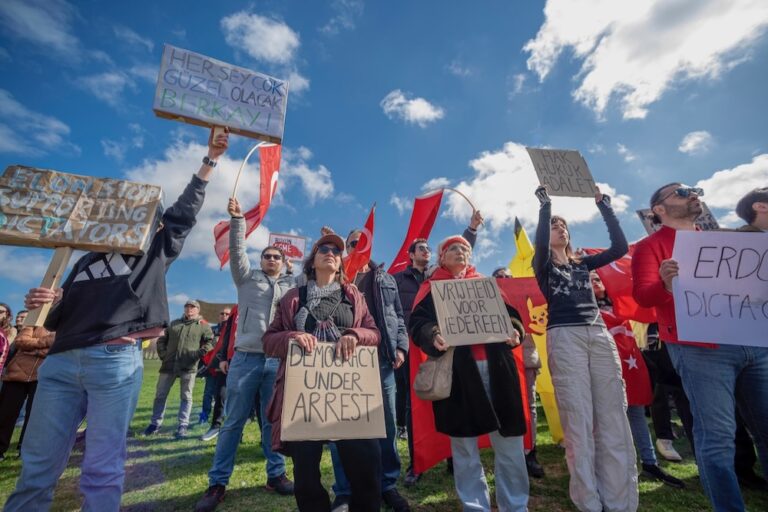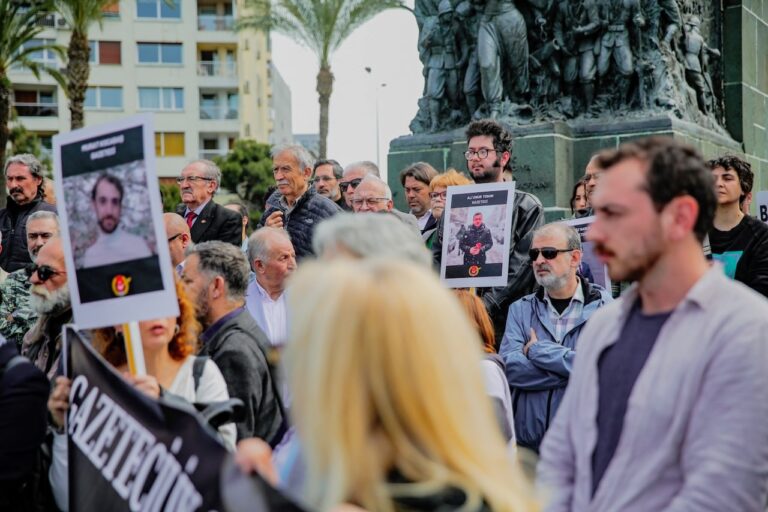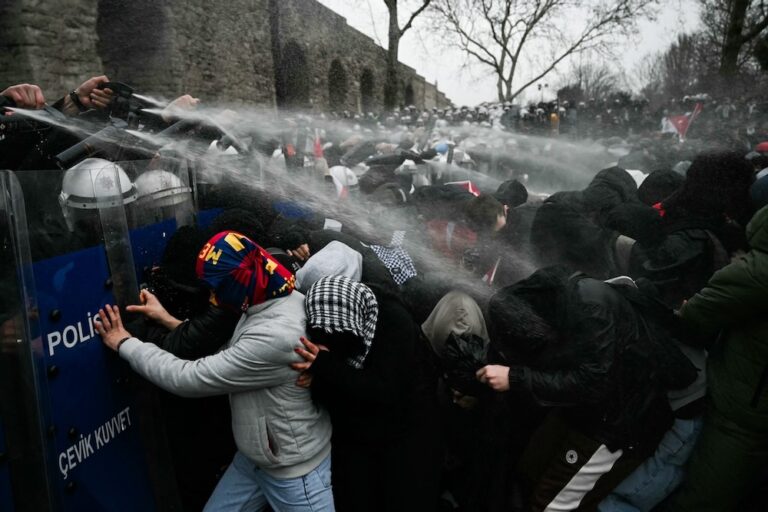Police searched the office of the "Radikal" newspaper in connection with an unpublished book by detained journalist Ahmet Sik.
(BIANET/IFEX) – Police searched the office of the “Radikal” newspaper located in the Hurriyet Media Towers in Istanbul on 24 March 2011. The search took place in relation to an unpublished book by journalist Ahmet Sik, who was arrested in the context of the Ergenekon investigation and has been held in detention since 6 March. Ergenekon is a clandestine ultra-nationalist terrorist organization charged with plotting to overthrow the government.
Sik’s manuscript, entitled “The Imam’s Army”, apparently deals with an alleged organization established within the police by the Fetullah Gulen religious community. The police tried to find drafts of the book on the computer of “Radikal” journalist Ertugrul Mavioglu. In a brief statement on the Turkish news channel NTV, Mavioglu said that the police copied from his computer a draft version of the book that he received fom Sik in December 2010. He also said he was told to delete the document from his hard drive. It was later reported that, while Mavioglu was speaking on NTV, the police deleted the manuscript from his computer.
Police also raided the Ithaki Printing House twice on 23 and 24 March based on a directive issued by Ergenekon Prosecutor Zekeriya Oz. The Ithaki company was reportedly going to publish Sik’s book. The search of the publishing house in Kadikoy on the night of 23 March lasted about six hours.
Based on a decision issued by the Istanbul 12th High Criminal Court, the police also asked Sik’s wife, Yonca Sik, and his lawyers to hand over drafts and attachments from the book. In the text of the court’s decision, it is claimed that the book was written and was to be published “on orders from the Ergenekon Armed Terrorist Organization.”
The Association of Turkish Publishers (TYB), the Turkish Writers Union (TYS) and the Turkish PEN Centre condemned the police raid on the Ithaki Printing House. “The seizure of the copy of Ahmet Sik’s unpublished book from a printing house is the latest indication of the dangerous level that violations of the freedom to publish have reached,” the associations said.
“We observe with concern that actions against journalists and writers, such as prosecution, arrest and imprisonment, based on the books they write and the news they report has become more and more widespread in recent years.”
The joint statement signed by TYS president Enver Ercan, Turkish PEN Centre vice president Halil Ibrahim Ozcan and TYB president Metin Celal was released at the Istanbul Medical Chamber on 24 March. It included harsh criticism of the police search relating to the unpublished book.
The TYB pointed to the fact that the police erased files from the computers of the printing company, stating, “As organizations of writers and publishers, we take a stance against all types of restrictions, pressure and obstruction of writing and creating, and conveying the results in spoken or written form.”
The court decision included a threat of legal action against the lawyers and other individuals if they fail to provide the documents connected with Sik’s book. It said that individuals who refuse to hand over the drafts and copies will be charged with “assisting and abetting an illegal organization” in accordance with Article 124 of the Turkish Criminal Law (TCK). Lawyer Ergin Cinmen said that assessing an unpublished book within the scope of terrorist activities is contrary to legal precepts. The potential application of Article 124 of the TCK against individuals who keep a copy or other documents related to the manuscript was evaluated as “unlawful” by Cinmen. The lawyer pointed to the Supreme Board of Judges and Prosecutors (HSYK) as the only mechanism with the jurisdiction to review matters of this nature.
According to Cinmen, a court decision is legitimate only if the court acts according to the law. “If a court decision is clearly not in line with the law, the legitimacy of both the decision and the court should be questioned. People develop a sense of despair if the feeling of justice fades away,” he noted.


